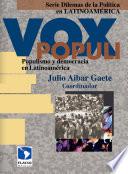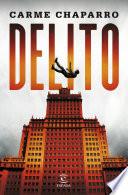EL ESPEJISMO
Resumen del Libro

The Mirage is an expression of Dr. Jamal Sanad Al-Suwaidi’s perspective that the struggle in which many Arab and Muslim countries are currently engaged against extremist groups and organizations is not limited to the realm of military and security operations; it is also an extended war of an essentially intellectual nature that requires long-term planning, which is no less important – indeed, perhaps even more so – than planning in military and security terms. Academic scholarship plays a vital role in protecting the security of nations and societies via rigorous analysis of challenges and threats and the subsequent presentation of appropriate solutions. The role of scholars in times of historic conflict is to be at the forefront of the defenders of human and civilizational values against extremists and radical militants. It is to this end that the author has written this book. The book examines this phenomenon from multiple research angles: intellectual, political, ideological, cultural and social, exploring political religious thought in its various manifestations, and explaining the intellectual and organizational disparities between relevant groups. The book tracks the history of this phenomenon, tracing it to its peak in the early 2010s, revealing the intellectual and ideological characteristics of these groups for interested researchers, decision makers and the public in an effort to deconstruct the various obstacles they pose to civilizational progress and development in Arab and Muslim countries. Every chapter reflects the author’s conviction that political religious groups represent neither the true face of Islam nor its moderate values, and that yielding to the claims of these groups is a serious affront to religion and its essential values of moderation and tolerance. The Mirage also employs an insightful research vision in its approach to political religious groups and their various practices and manifestations. It tracks their historical evolution and studies particular examples from their inception up until the recent failure of the Muslim Brotherhood-inspired governments that took power in certain Arab and Muslim countries, identifying the causes of their failure, exposing the fallacy of an 80-year legacy of pretentious slogans that attracted such veneration among these groups and their sympathizers — not least among the Muslim Brotherhood itself. Readers will recognize that various elements of current realities in Arab and Muslim countries show similarities with the backwardness of certain aspects of the European Middle Ages — particularly in terms of the ideologies and practices of political religious groups in the Arab and Muslim worlds in the modern era, and specifically their intellectual and political structures, the relationship between religion and politics, the role of clergy, as well as the prevailing philosophies in Europe and the Arab and Muslim worlds. This gives rise to several questions: are the Arab and Muslim worlds today fighting a similar battle to that experienced by the Europeans around five centuries ago? Does this mean that five centuries separate European and Islamic civilizations? And if so is there any way to overcome such a schism? Are backwardness and modernity inevitably sequential, whereby one becomes a prerequisite to the other? Why is modernity viewed as the antithesis of religiosity—an implicit rejection of religion and its teachings? Why do some groups in the Arab and Muslim societies think that talk about religion ends where talk about progress and development begins? Why have referential concepts disappeared and given way to destructive ideas like those espoused by political religious groups?
Información del Libro
Total de páginas 602
Autor:
- Prof. Jamal Sanad Al-suwaidi
Categoría:
Formatos Disponibles:
PDF, EPUB, MOBI
Descargar Libro
A continuación, te presentamos diversas opciones para adquirir el libro.
Valoración
3.7
17 Valoraciones Totales







